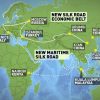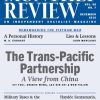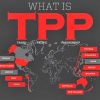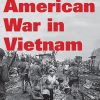Sovereignty and the State of Emergency
Following the July 14, 2016, massacre in Nice, French President François Hollande once again extended for three months a state of emergency that was to have ended on July 26. An initial, twelve-day state of emergency had been declared after the Paris attacks and extended for three months by a law of November 2015. Still another three-month extension was added and came to an end on May 26, only to be extended for two additional months. Despite the obvious ineffectiveness of such a measure…it has been extended yet again, through January 2017.… This normalization of the “state of exception” has provoked only a muted public reaction. France has thus entered into a permanent state of emergency. This choice is not the result of exceptional events to which the country must respond, but rather expresses an intention to change the political system, as shown by the move to constitutionalize the state of emergency. | more…

‘I Grew Up with Extraordinary People’

Policing the Poor in Detroit
On the afternoon of November 15, 2013, 150 police officers raided the Colony Arms, a low-income housing complex on Detroit’s East Side. One resident described the scene: “I saw…cop cars with the sirens…some kind of tank blocking the back alley, at least two helicopters doing I don’t know what…. The officers had real, real long rifles. It was like the army or something…like an invasion….” In all, thirty arrests were made, twenty-one related to parking violations. These arrests yielded a total of zero convictions. The raid occurred on a Friday; all those arrested were released from jail by Monday. The raid was declared a resounding success by the Detroit Police Department (DPD) and all of the city’s major media outlets. The raid on the Colony Arms inaugurated Operation Restore Order, a series of seventeen paramilitary police operations carried out between 2013 and 2015. Over the course of the operation, police made over a thousand arrests; as in the Colony Arms raid, however, these yielded little in the way of prosecutions. | more…

One Belt, One Road
In late 2013, Chinese premier Xi Jinping announced a pair of new development and trade initiatives for China and the surrounding region: the “Silk Road Economic Belt” and the “Twenty-First-Century Maritime Silk Road,” together known as One Belt, One Road (OBOR). Along with the Asian Infrastructure Investment Bank (AIIB), the OBOR policies represent an ambitious spatial expansion of Chinese state capitalism, driven by an excess of industrial production capacity, as well as by emerging financial capital interests. The Chinese government has publicly stressed the lessons of the 1930s overcapacity crisis in the West that precipitated the Second World War, and promoted these new initiatives in the name of “peaceful development.” Nevertheless, the turn to OBOR suggests a regional scenario broadly similar to that in Europe between the end of the nineteenth century and the years before the First World War, when strong nations jostled one another for industrial and military dominance. | more…
A Theory of China’s ‘Miracle’
China’s rapid economic development in recent years is often characterized as “miraculous.” Talk of a “Beijing Consensus” or “China model” has become commonplace in academic debates. But as we have written elsewhere, “theoretical problems have started to emerge with regards to the very existence, content, and prospects of the China model.” The key question, then, is what kind of economic theory and strategy underpin this “miracle.”… [W]e hold that the country’s major recent developmental gains are the achievements of theoretical advances in political economy, originating in China itself, while the main problems that have accompanied China’s development reflect the damaging influence of Western neoliberalism.… We hope to clarify the official theoretical model behind China’s economic “miracle,” using the terms and concepts prevalent in China today. | more…

The Story of Why I Am Here

December 2016 (Volume 68, Number 7)
In October 2016, the Sveriges Riksbank (Swedish Central Bank) Prize in Economic Sciences in Memory of Alfred Nobel—commonly but incorrectly called the Nobel Prize in Economics—was awarded to two European-born, U.S.-based economists, Oliver Hart and Bengt Holmström, for their work on contracts related to executive pay. Hart and Holmström were lauded for having theorized what was thought to be the optimal mix of risk and incentives in pay packages for corporate executives, thereby determining the appropriate combination of basic salary, bonuses, and share options. In other words, they received the Riksbank Nobel Memorial Prize for their efforts to rationalize the exorbitant paychecks of CEOs and other corporate leaders—a direct service to big business. | more…

Marx as a Food Theorist
Food has become a core contradiction of contemporary capitalism. Discussions of the economics and sociology of food and food regimes seem to be everywhere today, with some of the most important contributions made by Marxian theorists. Amid plentiful food production, hunger remains a chronic problem, and food security is now a pressing concern for many of the world’s people.… Despite the severity of these problems and their integral relation to the capitalist commodity system, it is generally believed that Karl Marx himself contributed little to our understanding of food…. [Yet] food for Marx was far more than a “passing interest”: in his work one finds analyses of the development of agriculture in different modes of production; climate and food cultivation; the chemistry of the soil; industrial agriculture; livestock conditions; new technologies in food production and preparation; toxic additives in food products; food security; and much more. Moreover, these issues are not peripheral, but organically connected to Marx’s larger critique of capitalism. | more…

The Rhetoric and Reality of the Trans-Pacific Partnership
Since announcing its foreign policy “pivot to Asia” shortly after the election of Barack Obama, the United States has made extensive use of its institutional and discursive power to encourage denationalization among developing countries whose economies chiefly rely on manufacturing and trade—part of its global strategic goal of expanding the hegemony of finance capital at the lowest possible cost. The development of the Trans-Pacific Partnership (TTP) is a case in point. This article analyzes the TPP’s strategy in targeting China, pointing out that the TPP is a battle for the terms of economic development and discourse in the twenty-first century, as well as an illustration of the ideology of technocracy and soft power. Lastly, we criticize the TPP’s erosion of economic sovereignty, which would effectively relegate the economies of developing countries to a form of semi-colonial extraterritoriality. | more…

Vietnam and the Sixties
In early 1970, Vice President Spiro Agnew had this to say about the so-called ’60s Generation: “As for these deserters, malcontents, radicals, incendiaries, the civil and the uncivil disobedients among our youth, SDS, PLP, Weathermen I and Weathermen II, the revolutionary action movement, the Black United Front, Yippies, Hippies, Yahoos, Black Panthers, Lions, and Tigers alike—I would swap the whole damn zoo for a single platoon of the kind of young Americans I saw in Vietnam.” This is a fascinating statement for multiple reasons and on multiple levels. To begin with, a single platoon of the kind of young Americans he saw in Vietnam went into a village we remember as My Lai and murdered 407 unarmed men, women, and children. On the same day, in the nearby village of My Khe, another unit of the same division murdered an estimated 97 additional Vietnamese civilians. While I personally did not participate in or witness killing on that scale, I and my fellow Marines routinely killed, maimed, and abused Vietnamese on a near-daily basis, destroying homes, fields, crops, and livestock with every weapon available to us, from rifles and grenades to heavy artillery and napalm.… It is no wonder, it turns out, that Agnew should be so fond of “the kind of young Americans” he saw in Vietnam, since he himself turned out to be a criminal who was forced to resign from his office in public disgrace. | more…

Lessons from the Vietnam War
The Vietnam War was an example of imperial aggression.… Imperialism ultimately enriches the home country’s dominant class. The process involves “unspeakable repression and state terror,” and must rely repeatedly “upon armed coercion and repression.” The ultimate aim of modern U.S. imperialism is “to make the world safe” for multinational corporations.… U.S. imperial actions in Vietnam and elsewhere are often described as reflecting “national interests,” “national security,” or “national defense.” Endless U.S. wars and regime changes, however, actually represent the class interests of the powerful who own and govern the country. Noam Chomsky argues that if one wishes to understand imperial wars, therefore, “it is a good idea to begin by investigating the domestic social structure. Who sets foreign policy? What interest do these people represent? What is the domestic source of their power?” | more…

Empire of Bases
The United States maintains about 800 military installations around the world, and the number is growing, despite partial withdrawals of troops from Iraq and Afghanistan and scaling back of major European bases. The continued expansion…has come mainly through a series of smaller “lily pad” installations, originally proposed by Defense Secretary Donald Rumsfeld, that are now being built in Africa, Eastern and Central Europe, Latin America, the Middle East, and beyond.… [David] Vine, a professor of anthropology at American University [and author of Base Nation], visited more than sixty current or former bases in twelve countries and territories. Although scholars such as Chalmers Johnson, Cynthia Enloe, and Catherine Lutz, as well as contributors to Monthly Review, have for decades sounded the alarm about the ever-expanding global network of U.S. military bases, Vine’s new study provides a comprehensive update, persuasively documenting the ways that “far from making the world a safer place, U.S. bases overseas can actually make war more likely and America less secure.” | more…

Her Revolution, Her Life
In the early 1950s, Haydée Santamaría Cuadrado moved from a rural Cuban sugar plantation to Havana, to live with her younger brother Abel. Together, they would help to establish a revolutionary movement that would change the history of their country. Haydée, as she is known throughout Cuba—Yeyé to her friends—was one of only two women among 160 men who took part in attacks on Batista’s army barracks at Moncada and Bayamo on July 26, 1953, which sparked the Cuban Revolution.… In her recent book, poet and scholar Margaret Randall, who lived in Cuba in the 1970s and became friends with Haydée, has captured the essence of this exemplary woman. | more…